Archive for November, 2013
Eastern Partnership, as one of the priorities of the Lithuanian Presidency of the Council of the EU, is a natural choice, determined by the Lithuanian and the EU interest to have safe, stable, economically strong and pro-European Eastern neighbours. Our goal is to have pro-active and efficient Eastern Partnership policy that would bring tangible results for these countries and their people. This could be achieved through the joint efforts of the EU institutions, EU Member States and Eastern Partners themselves. 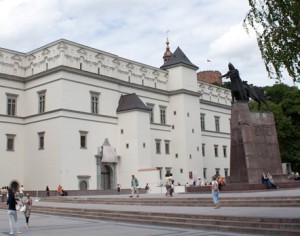
Through the Eastern Partnership, the EU strengthens its bilateral and multilateral cooperation with the six Eastern European partners: Armenia, Azerbaijan, Belarus, Georgia, Moldova and Ukraine, supports reform processes of these countries, and seeks to bring them closer to the EU.
Main results
Over the first four years of its implementation, Eastern Partnership initiative has brought a number of tangible results:
- Association Agreements, including Deep and Comprehensive Free Trade Areas, as their integral parts, have been negotiated with Ukraine, the Republic of Moldova, Georgia and Armenia; good progress has also been achieved in respective negotiations with Azerbaijan;
- considerable progress has been made in the area of visa facilitation and liberalization: 5 out of 6 partners already have or will soon have Visa Facilitation Agreements; 3 of them managed to advance even more – they now have Visa Liberalization Actions Plans, prepared specifically to them, full and effective implementation of which will bring these countries straight to the visa free travels with the EU;
- the multilateral cooperation dimension has been established and further strengthened: it now includes senior officials and experts working in a number of different areas, from agriculture and environment to trade, migration and CSDP;
- sectorial cooperation has also been enhanced, with the first Eastern partnership ministerial meetings in the fields of Justice and Home Affairs, and Transport, held in October 2013, in Luxembourg;
- cooperation between societies at large has been started and such formats as Civil Society Forum, Conference of the Regional and Local Authorities (CORLEAP), Business Forum and Youth Forum are now meeting on a regular basis, thus contributing to the monitoring of the implementation of the Eastern Partnership, but also to the policy shaping.
The third Eastern Partnership Summit in Vilnius
The third Eastern Partnership Summit in Vilnius will be held on the 28-29 November, 2013. The leaders and other high level representatives of the EU institutions, 28 EU Member States and the 6 Eastern European Partner States are expected to take part in the EaP Vilnius Summit. The event will be hosted by the President of the Republic of Lithuania Dalia Grybauskaitė and chaired by the President of the European Council Herman Van Rompuy.
Eastern Partnership Summits are held every two years (the first two Summits took place in the Czech Republic (Prague), 7 May, 2009, and in Poland (Warsaw), 29-30 September, 2011). During these meetings, the implementation and the results of the Eastern Partnership are discussed, the objectives for the next two years are determined and the prospects for the future are drawn.
Source: official site of the Summit
* * *
Joint statement by President of the European Council Herman Van Rompuy and President of the European Commission José Manuel Barroso on Ukraine
Concerning the Ukrainian decision to suspend temporarily the preparations for signing the Association Agreement and Deep and Comprehensive Free Trade Area (DCFTA), the European Union’s position remains clear. The offer of signing an unprecedented Association Agreement and a DCFTA is still on the table. This requires the necessary political will by the Ukrainian leadership, determined action and tangible progress on the conditions set out in December 2012.
Important progress has already been achieved by Ukraine. We are convinced that signing the Association Agreement and a DCFTA, the most ambitious agreement the European Union has ever offered, provides the best possible support for Ukraine’s economic situation, reform course and modernisation in view of building a prosperous and stable future for all Ukrainians. The EU stands ready to be more open and more supportive to those who are willing to engage in reforms and modernisation.
While being aware of the external pressure that Ukraine is experiencing, we believe that short term considerations should not override the long term benefits that this partnership would bring. However the European Union will not force Ukraine, or any other partner, to choose between the European Union or any other regional entity. It is up to Ukraine to freely decide what kind of engagement they seek with the European Union. Ukrainian citizens have again shown these last days that they fully understand and embrace the historic nature of the European association.
We therefore strongly disapprove of the Russian position and actions in this respect. The Association Agreement and a DCFTA are opportunities to accompany our common neighbours towards modern, prosperous and rule-based democracies. Stronger relations with the European Union do not come at the expense of relations between our Eastern partners and their other neighbours, such as Russia. The Eastern Partnership is conceived as a win-win where we all stand to gain. The European Union continues to stand ready to clarify to the Russian Federation the mutual beneficial impact of increased trade and exchanges with our neighbours, whilst fully respecting the sovereignty and independence of our Eastern Partners and the bilateral nature of Association Agreement and DCFTAs.
The European Union looks forward to the Eastern Partnership Summit in Vilnius this week. It will be an important moment to take stock of the situation and take forward the relations with our Eastern partners.
La battaglia è probabilmente finita. L’ultima incognita è legata alla tradizionale imprevedibilità degli ucraini. Ma se dovesse andare proprio in questo modo il processo di integrazione europea ad Est, nelle terre un tempo ex sovietiche, segnerebbe una brusca frenata.
Le pressioni del Cremlino sulla repubblica ex sorella hanno avuto, pertanto per ora, la meglio. Nei mesi scorsi la Russia ha iniziato a far capire a quali conseguenze spaventose l’Ucraina sarebbe andata incontro se Kiev avesse legato il suo destino all’Ue.
Mosca non intende avere concorrenti all’interno del suo “cortile di casa” è la lezione appresa in questi giorni tesissimi dai funzionari europei.
A nulla è valsa la dichiarazione al vetriolo della cancelliera tedesca Merkel, che ha ricordato a Vladimir Putin, che la “Guerra Fredda è finita da 24 anni” e che ogni Paese è sovrano di decidere la sua politica.
Il presidente Janukovich è stato posto davanti alla scelta tra il Patto Associativo con l’Ue e la concorrente nascente Unione Doganale, una specie di Urss economica. Il primo è un ottimo investimento sul futuro con vantaggi enormi nel lungo periodo. La seconda è un rattoppo utile nel breve periodo, ma un progetto troppo ambizioso che zoppica fin dai suoi esordi.
In sintesi, Kiev è rimasta stritolata in mezzo.
Dopo il voto negativo del Parlamento ucraino l’Unione europea lascia ancora la porta aperta, anche perché è finalmente conscia che Janukovich e i suoi si trovano davanti ad una decisione epocale, non solo economica ma anche geostrategica e psicologica.
Gli europei, per decenni satelliti del Cremlino, sanno perfettamente che la Russia senza l’Ucraina non potrebbe più essere in futuro un impero e verrebbe ricacciata ad Est, verso l’Asia. A Kiev è poi nata la Rus’ medioevale e da quelle radici storico-culturali-religiosi si è sviluppata successivamente la Moscovia.
Chi vincerà questo scontro geopolitico tra Russia ed Ue dovrà, comunque, farsi carico dell’Ucraina, Paese oggi sull’orlo di una gravissima crisi finanziaria. Nei prossimi mesi serviranno non meno di 10 miliardi di dollari per rimpinguare le asfittiche casse di Kiev.
Altrimenti l’intera Europa centrale sarà colpita da una nuova ondata di crisi.
gda
EU’s budget 2014-2020 adopted at last.
21 Nov 2013Members of the European Parliament (MEPs) voted 537 in favour (Conservatives, Socialists) to 126 against (Greens and radical left) to adopt the EU’s budget for 2014 to 2020.
Known as the Multi-annual Financial Framework (MFF), it provides for 908 billion euros in payments against 960 billion euros in funding commitments, 3.7 percent and 3.5 percent less than in the previous 2007-2013 budget.
A third (37 percent) of the budget will be allocated to the Common Agricultural Policy and 34 percent to Cohesion and Regional policy.
The vote marks the end of a bitter battle in which the budget went back and forth between austerity-minded governments and the EU’s executive European Commission and MEPs, who wanted more funds to boost growth and jobs.
Россия, деградирует государство, а не общество.
20 Nov 2013«Есть дела, которые однозначно в России делать веселее, чем в Германии. Например, гулять с ребенком по общественному пространству… 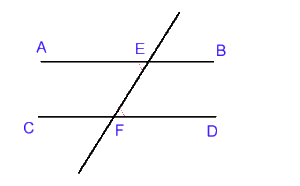
Я пишу о России гораздо больше плохого, чем хорошего. И это не чистосердечное признание, не явка с повинной, а просто описание моей профессиональной деятельности…
От цинизма и пьянства до белой горячки меня, однако, спасает та банальная истина, что человеческая жизнь гораздо больше, чем политика…
Москва способна добреть. Способна даже Рублевка…
И официальные, и неофициальные эксперты утверждают, что экономика России в застое. Что общество деградирует. Но это не совсем так. По сути, деградирует не общество, а государство; деградируют государственные концерны-динозавры; деградирует государственная телеобщественность на экранах.
Общество, народ — живет, выкручивается, строится. По оценкам группы московских социологов под руководством Юрия Плюснина, от 15 до 40% российских семей уже живут отходничеством: взрослые мужчины из села едут на такие же — нелегальные — заработки в крупные города, как и среднеазиатские гастарбайтеры. Налоги не платят, пенсию не ждут. Им точно так же плевать на государство, как и ему на них. А дома строятся, покупаются машины, трактора, даже снегоходы, чтобы подрабатывать в межсезонье.
В стране возникает целый параллельный средний класс. Параллельная Россия, которая старается держаться подальше от государства и политики, но трудится, творит, растет и радуется.
Конечно, и политики творят. Свою политику…. »
Статья – Штефан Шолль – Московский Комсомолец № 26388 от 19 ноября 2013 г. Stefan Scholl Moskovskij Komsomolets
Миграция в ЕС и русский национализм.
19 Nov 2013«Поднимаюсь на третий этаж. Давно не бывал в морском музее «Галата», что в 200 метрах от знаменитого генуэзского аквариума, в древнем порту…
Медленно передвигаюсь по залам, посвященным старой и новой миграциям…
С использованием официальной статистики ЕС показывается, что общепринятые клише о миграции совершенно неправильны. Точнее, просто ошибочны. 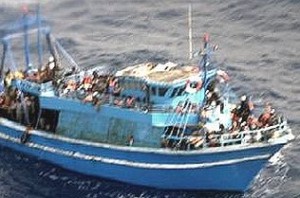
Ах, как я захотел, чтобы некоторые мои знакомые из России были в этот момент со мной! Они бы успокоились со своим излюбленными речами о страшных угрозах и чуть ли не гибели европейской цивилизации…
В России дело осложняется тем, что вопрос миграции из-за рубежа опасно смешивают с отношением к своим собственным регионам. Конечно, речь идет о Северном Кавказе. Италия тоже страдает от своего плохо экономически развитого юга, Германия — от востока, но никому и в голову не придет заявлять то, что все чаще звучит из уст некоторых государственных и политических деятелей России, включая ряд оппозиционеров.
Однако российским политикам все же придется ответственно объяснить гражданам разницу. В многонациональном государстве «русские марши» с популистскими лозунгами типа «хватит кормить Кавказ» и даже откровенными призывами к насилию и убийствам людей других национальностей провоцируют лишь тяжелые раны в обществе. Не стоит забывать страшный урок сербского национализма, в конце 1980-х годов прошлого века взорвавшего Югославию и принесшего огромное разочарование самим сербам».
Статья – Джузеппе Д’Амато Московский Комсомолец Московский Комсомолец № 26387 от 18 ноября 2013 г.Giuseppe D’Amato Moskovskij Komsomolets
UN annual climate conference in Warsaw.
11 Nov 2013” Negotiators from around the world begin meeting in Warsaw for an annual climate conference. In the past, Poland has made its mark by blocking the EU from calling for stricter greenhouse gas emissions limits. 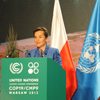
For Christiana Figueres the facts are clear. “There is a very real necessity to reduce greenhouse gas emissions,” said the UN Framework Convention on Climate Change’s executive director. A report from the UN environment agency UNEP released at the beginning of November showed just how real this necessity is: we can only meet the target of limiting global warming to 2 degrees Celsius (3.4 degrees F) if greenhouse gas emissions worldwide are drastically reduced in the years leading up to 2020….
The likelihood that big countries come forward at during the climate conference in Warsaw, which begins Monday (11.11.2013) with binding promises to reduce their emissions is low. This is partly due to the fact that the European Union has so far failed to set a good example by agreeing on an ambitious goal for its own carbon dioxide reductions…. “
Full Article – Deutsche Welle
La chiamavo Beatrix, la donna che regala la beatitudine. Lei rideva e mi lasciava nel dubbio.
Nel bosco c’ erano una ventina di gradi sotto lo zero. Con le sue amiche faceva un buco nella crosta ghiacciata dello stagno e si tuffava con il bikini nell’acqua gelida. Come se fosse a Catanzaro Lido in agosto. Orgogliosa ci faceva vedere il giorno dopo le fotografie. Le dicevo. Tu sei pazza, sorella.
Andava a cavallo e galoppava tra le betulle come un’amazzone. Io restavo a terra. La guardavo con il fiato sospeso perché temevo che il cavallo potesse scivolare, imbizzarrirsi, disobbedire. Bionda, con gli occhi chiari. Pareva una nordica, non una russa perché le russe hanno un diverso colore di capelli e sono molto alte. Bea non era alta.
Nella mia casa a Mosca ci riunivamo di sera i giornalisti e tiravamo con una balestra vera contro il bersaglio inchiodato dietro la porta.
Capitava che il dardo saltasse prima del tiro. Niente da fare. 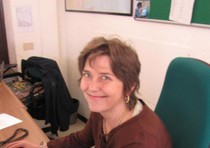
La regola era: ‘un colpo solo’. Perdevi così il turno. Beatrice quasi sempre faceva centro.
Un giorno del 1994 le cadde sul piede lo sportello dell’armadio e le fratturò l’alluce. Io andai a trovarla e le regalai una vecchia icona bruciacchiata che avevo comprato il giorno prima al mercatino di Ismailovo. Le piaceva molto. La teneva sempre sul comodino. Chissà dove sarà ora quella vecchia icona.
Venne con il piede ingessato a una mia festa. Ghenna la prese in braccio e la fece ballare. Piroettavano da un capo all’altro della stanza al suono di un lento. Forse Battisti.
Ghenna cercò di baciarla. Lei si scansò. Il russo ci rimase male, ma non si sbilanciò. Continuò a farla ballare tenendola in braccio.
Poi l’Ansa mi mandò in India. Beatrice andò a Belgrado. La rividi due anni fa. Scrissi questo pezzo per scarfone.blogspot.com.
***
‘’L’Università di Roma, la Sapienza, e l’Università Statale di Mosca, si somigliano. Non solo per la presenza nei due atenei di statue e dipinti che mostrano uomini di proporzioni colossali intenti a costruire il mondo nuovo. Non solo. Si somigliano principalmente nei volti austeri dei docenti, nell’allegria dei ragazzi che sciamano per corridoi, aule, scalinate.
Sono le tre del pomeriggio del 2 dicembre 2011. Nell’ingresso dell’università, grande due volte uno stadio di basket, si affollano centinaia di studenti, professori, fotografi. S’inaugura la mostra dell’agenzia ‘Ria Novosti’ e della stessa università sui venti anni (1991-2011) della Russia dopo la dissoluzione dell’Urss.
C’è uno spazio fisico, un vuoto tra le quattro persone che si accingono a presentare le mostra e la folla degli studenti. Diciamo pure, c’è la doverosa distanza tra chi apprende e chi insegna. All’esterno della Facoltà ci sono manifesti degli ‘Indignados’ contro la crisi e la disoccupazione giovanile. I ragazzi della Sapienza non sono cambiati: contestatori, ma rispettosi della ‘distanza accademica’.
I quattro sono: il rettore della Sapienza Luigi Frati, il padrone di casa. Esordirà dicendo in russo ‘Gospodin pamilumtsia’ (Signore perdonaci o qualcosa del genere) e poi proseguirà in italiano elogiando il lavoro dei fotografi della Novosti. C’è l’ambasciatore della Russia in Italia alexej Meshkov: a occhio e croce alto 1,85, ha il corpo di un medio-massimo sotto l’impeccabile completo blu ambasciatoriale. Nel suo discorso, tutto in italiano, si sofferma sul cammino comune fatto da Italia e Russia nel tempo. C’è il prorettore Antonello Biagini, responsabile per i rapporti internazionali, c’è il giornalista Sergey Startsev, direttore della Ria Novosti per l’Italia.
Poco prima della cerimonia si avvicina a Scarfone una donna, una bella donna, e lo fissa dubbiosa con grande intensità. L’uomo si sente imbarazzato e chiede: ‘’Lei è per caso parente degli Ottaviano?’.
La donna rimane zitta. Poi Scarfone sente per mezzo secondo un grido rabbioso: ‘Un colpo solo’. Certo, riconosce la donna e l’abbraccia con immenso affetto. Quella è Beatrice Ottaviano, ex capo di Ansa a Mosca, ora a Roma, incaricata di seguire la mostra fotografica sui vent’anni.
Nella mia casa a Mosca si riunivano di sera i giornalisti e tiravano con una balestra vera contro il bersaglio inchiodato dietro la porta. Ottaviano quasi sempre faceva centro. Il ruolo delle giornaliste italiane in Russia meriterebbe un libro: per la loro cultura, il coraggio, la femminilità nel Paese degli ussari e dei cosacchi.
Roberto Scarfone
Non ci sono state sorprese. La Commissione elettorale ha comunicato che a spoglio quasi ultimato il presidente uscente Emomali Rakhmon ha ottenuto l’83% delle preferenze, mentre gli altri 5 candidati non hanno superato il 5%. Come da tradizione l’affluenza alle urne è stata altissima e si è attestata oltre l’86% degli aventi diritto.
Al potere dal ’92, Rakhmon ottiene così un nuovo mandato di 7 anni. Mai, nella sua storia post sovietica, in Tagikistan si è tenuto un ballottaggio. 500 circa sono stati gli osservatori internazionali presenti che hanno giudicato non positivamente le elezioni per “mancanza di una vera scelta”.
L’unica candidata con qualche possibilità non è stata ammessa alle consultazioni.
Paese montagnoso ai confini con l’Afghanistan, il Tagikistan è un passaggio obbligato per la droga verso i mercati ex sovietici. Le infiltrazioni estremistiche da sud sono state numerose in passato (un centinaio di tagichi combattono oggi in Siria con l’opposizione) ed il potere tiene sotto controllo i radicali.
L’economia locale si sorregge sulle copiose rimesse degli emigranti andati a cercar fortuna all’estero, principalmente in Russia, che mantiene sul confine afghano un’importante base militare.
Россия, «Русский марш» экстремистов.
4 Nov 2013Главным событием Дня народного единства по традиции стал «Русский марш». Эта традиция лично у меня стала вызывать недоумение. Почему в самый интернациональный день в году власти согласовывают не какое-нибудь фольклорное шествие народов в национальных костюмах, а акцию националистов? Их еще, чтобы избежать тавтологии, можем называть русскими фашистами. Они не против. И каждый раз, когда они получают санкцию на шествие 4 ноября, я не понимаю, это власть так слаба или фашизм так силен?
Статья – МК
Welcome
We are a group of long experienced European journalists and intellectuals interested in international politics and culture. We would like to exchange our opinion on new Europe and Russia.
Categories
- Breaking News (11)
- CIS (129)
- Climate (2)
- Energy&Economy (115)
- EU Eastern Dimension (85)
- Euro 2012 – Sochi 2014 – World Cup 2018, Sport (43)
- Euro-Integration (135)
- History Culture (198)
- International Policy (261)
- Military (74)
- Interviews (18)
- Italy – Italia – Suisse (47)
- Odd Enough (10)
- Poland and Baltic States (126)
- Religion (31)
- Russia (421)
- Survey (4)
- Turning points (4)
- Ukraine (176)
- Российские страницы (113)
Archives
- November 2020
- October 2020
- September 2020
- August 2020
- July 2020
- May 2020
- April 2020
- March 2020
- January 2020
- December 2019
- November 2019
- October 2019
- September 2019
- August 2019
- July 2019
- June 2019
- May 2019
- April 2019
- March 2019
- February 2019
- December 2018
- November 2018
- October 2018
- September 2018
- August 2018
- July 2018
- June 2018
- May 2018
- April 2018
- March 2018
- February 2018
- January 2018
- December 2017
- November 2017
- October 2017
- September 2017
- August 2017
- July 2017
- May 2017
- March 2017
- January 2017
- December 2016
- November 2016
- October 2016
- September 2016
- July 2016
- June 2016
- May 2016
- April 2016
- February 2016
- January 2016
- November 2015
- October 2015
- September 2015
- June 2015
- April 2015
- March 2015
- February 2015
- January 2015
- December 2014
- November 2014
- October 2014
- September 2014
- August 2014
- July 2014
- June 2014
- May 2014
- April 2014
- March 2014
- February 2014
- January 2014
- December 2013
- November 2013
- October 2013
- September 2013
- August 2013
- July 2013
- June 2013
- May 2013
- April 2013
- March 2013
- February 2013
- January 2013
- December 2012
- November 2012
- October 2012
- September 2012
- August 2012
- July 2012
- June 2012
- May 2012
- April 2012
- March 2012
- February 2012
- January 2012
- December 2011
- November 2011
- October 2011
- September 2011
- August 2011
- July 2011
- June 2011
- May 2011
- April 2011
- March 2011
- February 2011
- January 2011
- December 2010
- November 2010
- October 2010
- September 2010
- August 2010
- July 2010
- June 2010
- May 2010
- April 2010
- March 2010
- February 2010
- January 2010
- December 2009
- November 2009
- October 2009
- September 2009
- August 2009
Our books




